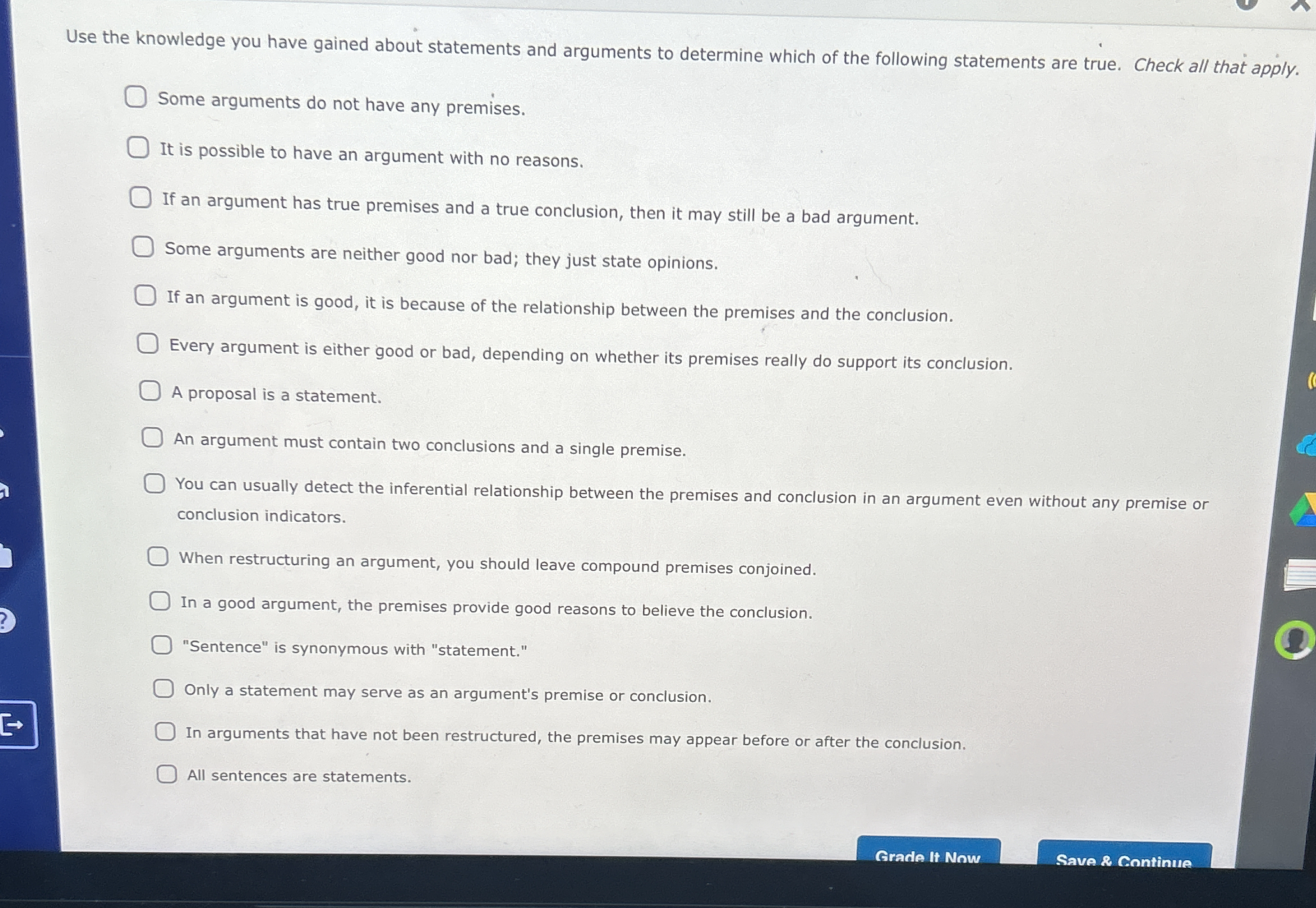Use the knowledge you have gained about statements and arguments to determine which of the following statements are true. Check all that apply.

Understand the Problem
The question asks which statements about arguments and premises are true. It requires evaluating each statement based on knowledge of logical reasoning.
Answer
The true statements are those about premises/conclusion relationships, inference detection, and placement in arguments.
The statements that are true are:
- If an argument has true premises and a true conclusion, then it may still be a bad argument.
- If an argument is good, it is because of the relationship between the premises and the conclusion.
- You can usually detect the inferential relationship between the premises and conclusion in an argument even without any premise or conclusion indicators.
- Only a statement may serve as an argument's premise or conclusion.
- In arguments that have not been restructured, the premises may appear before or after the conclusion.
Answer for screen readers
The statements that are true are:
- If an argument has true premises and a true conclusion, then it may still be a bad argument.
- If an argument is good, it is because of the relationship between the premises and the conclusion.
- You can usually detect the inferential relationship between the premises and conclusion in an argument even without any premise or conclusion indicators.
- Only a statement may serve as an argument's premise or conclusion.
- In arguments that have not been restructured, the premises may appear before or after the conclusion.
More Information
A good argument relies on the logical coherence between premises and conclusion, not just their truth.
Tips
A common mistake is assuming true premises and a true conclusion guarantee a good argument. The logical structure is key.
Sources
AI-generated content may contain errors. Please verify critical information